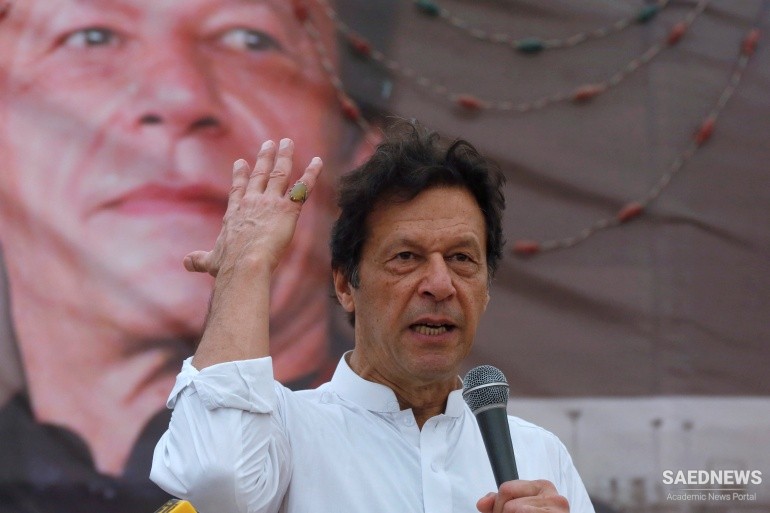Islamabad, SAEDNEWS: Imran Khan’s tumultuous term as prime minister of Pakistan has ended, following weeks of high political drama and days of constitutional chaos. The Supreme Court’s landmark verdict late on Thursday restored a parliament that Khan had sought to disband and mandated a vote of no confidence that he sought to avoid.
The former prime minister’s political demise was rooted in twin new realities. Inside parliament, Khan’s Pakistan Tehreek-e-Insaf (PTI) had lost the support of coalition allies, denying him the majority he needed to defeat the vote of no confidence.
Outside parliament, Khan appeared to lose the support of Pakistan’s powerful military, which the opposition alleged helped him win the 2018 general election, and had recently publicly fallen out with the prime minister over senior military appointments and policy decisions.
The PTI and the military have denied the allegations.
In recent weeks, as the principal opposition parties, the Pakistan People’s Party (PPP) and Pakistan Muslim League – Nawaz (PML-N), ramped up their efforts to dislodge Khan, coalition allies became vocal in their dissatisfaction with him.
“As far as governance was concerned, the government had totally failed,” said Senator Anwaar ul Haq Kakar of the Balochistan Awami Party (BAP), a coalition ally that withdrew support for Khan in late March.
“There was disgruntlement for the past two years,” Kakar added. “The party [BAP] was not happy about its share in the federal government and the ministerial portfolio it has been allocated.”
“I was impressed by Khan’s anti-corruption platform and was tired of the status quo,” Chan said. “But then I saw that while Khan publicly talked about the poor, privately he surrounded himself with wealthy investors.”


 Daesh-claimed bombing at Shia mosque in Pakistan draws Muslim condemnation
Daesh-claimed bombing at Shia mosque in Pakistan draws Muslim condemnation














































